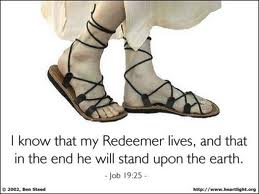People who look through keyholes, said Author Unknown, are apt to get the idea that most things are keyhole shaped.
In the very first post of this series I made the point that, in regard to life’s tribulations, what we often lack is an accurate perspective. Here, in Chapter 42, at the end of this, shall I say, severe story, it remains true.
Okay, so I’ll concede that a fair amount of self-righteousness got in Job’s way. I can say this because I am without fault. Wait! Wait! That can’t be true, can it?!
We might quibble with the method of Job’s correction. Seemed sometimes like taking a sledgehammer to a pimple. But that’s God’s decision to make. And if there’s is one thing the Book of Job makes clear it is that God Has His Reasons. And He doesn’t always share them.
There is a key to this story in the last chapter. Job, thoroughly humbled, repents in dust and ashes. Then his friends repent. Quickly. (When God uses the term “wrath” in regard to your behavior, it is best to round up those bulls and start building an altar.)
So far, so good. But there is one more thing.
And the Lord restored Job’s losses when he prayed for his friends. (Vs. 10a)
Are you as stunned by this as I am? God permits Satan to strip Job of family and possessions. And afflict him with a disfiguring disease. After which Job must endure repeated verbal assaults by men who should have been his comforters.
But, ultimately, Job is permitted no self-pity. None. Instead, he must reach deep into the inner recesses of his character. He must draw on reserves of compassion that tragedy and betrayal have not, miraculously, drained away.
“Perhaps,” writes T. Whitelaw, “his complete forgiveness by God was contingent on his own complete forgiveness of his friends.”
~~~~~~~~~~~~~~~~
And so, this book has puzzled, shocked, angered, and humbled me. I am grateful for its splendid revelations and unflinching honesty. Time now to work on that perspective. And living out verse 10.
Is unforgiveness crippling you in some way? What’s in the way – pride?












